New generation inspired to take up traditional music
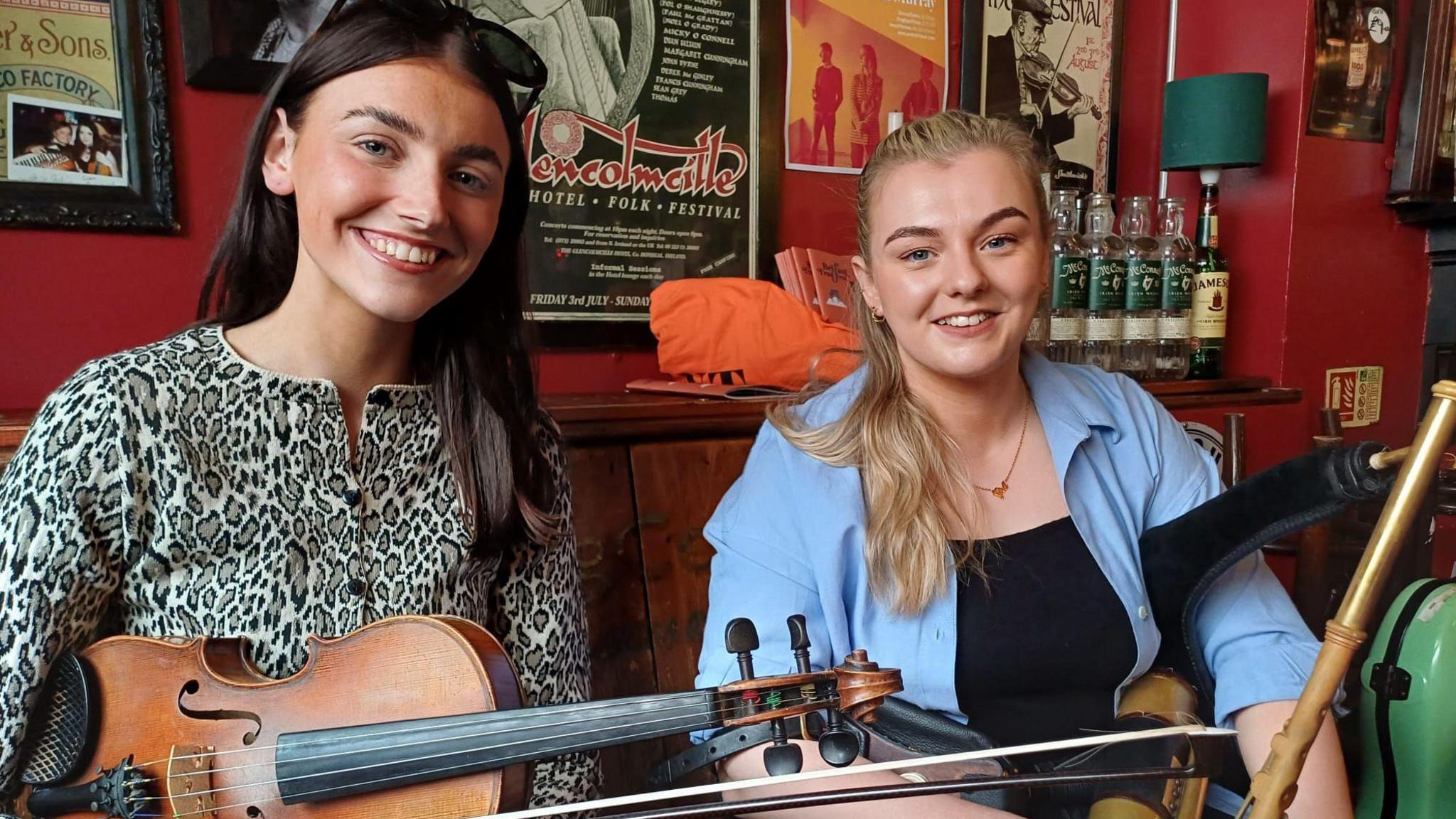
Rosie, 21, and Maeve, 24, will be performing at different sessions in Belfast TradFest
- Published
A Dungannon piper has said it is vital that "more and more young women" are taking an interest in traditional music.
Twenty-four year-old Maeve O’Donnell started playing the tin whistle when she was 11, but “fell in love with the uilleann pipes” when she was 13 and “never stopped".
“You notice more and more in the sessions, women are coming out and playing, which is brilliant to see, and in workshops it's nearly predominantly girls and women playing and we just have to keep going that way,” she told BBC News NI.
Maeve is one of hundreds of musicians who will be taking part in Belfast TradFest on Sunday.
Hundreds of musicians and artists are set to take part in events in the city.
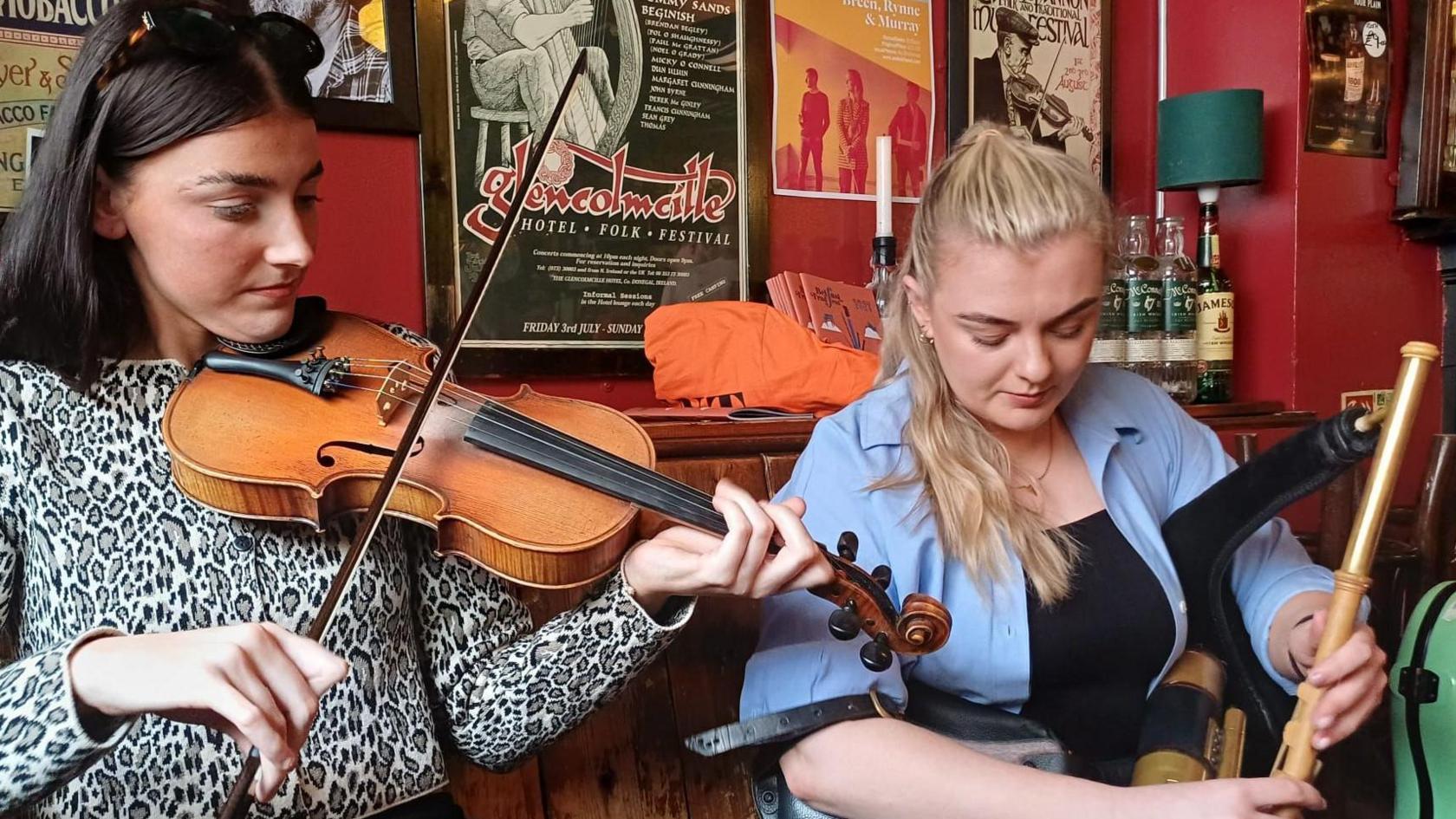
The Tradfest kicks off with Sunday's céilí at the Titanic Slipways
Maeve said the pandemic put a strain on traditional music in Northern Ireland, but it is bouncing back.
“The scene has changed over the years, especially with Covid, it took a big hit, but it's grown again,” she said.
It is back and bigger and better, she added.
Maeve explained the festival is “smack bang in the middle of the city” and has something for everyone.
“There are brilliant gigs and line-ups, as well as talks and lectures on the festival clubs and everything; you'll always have something coming up.”
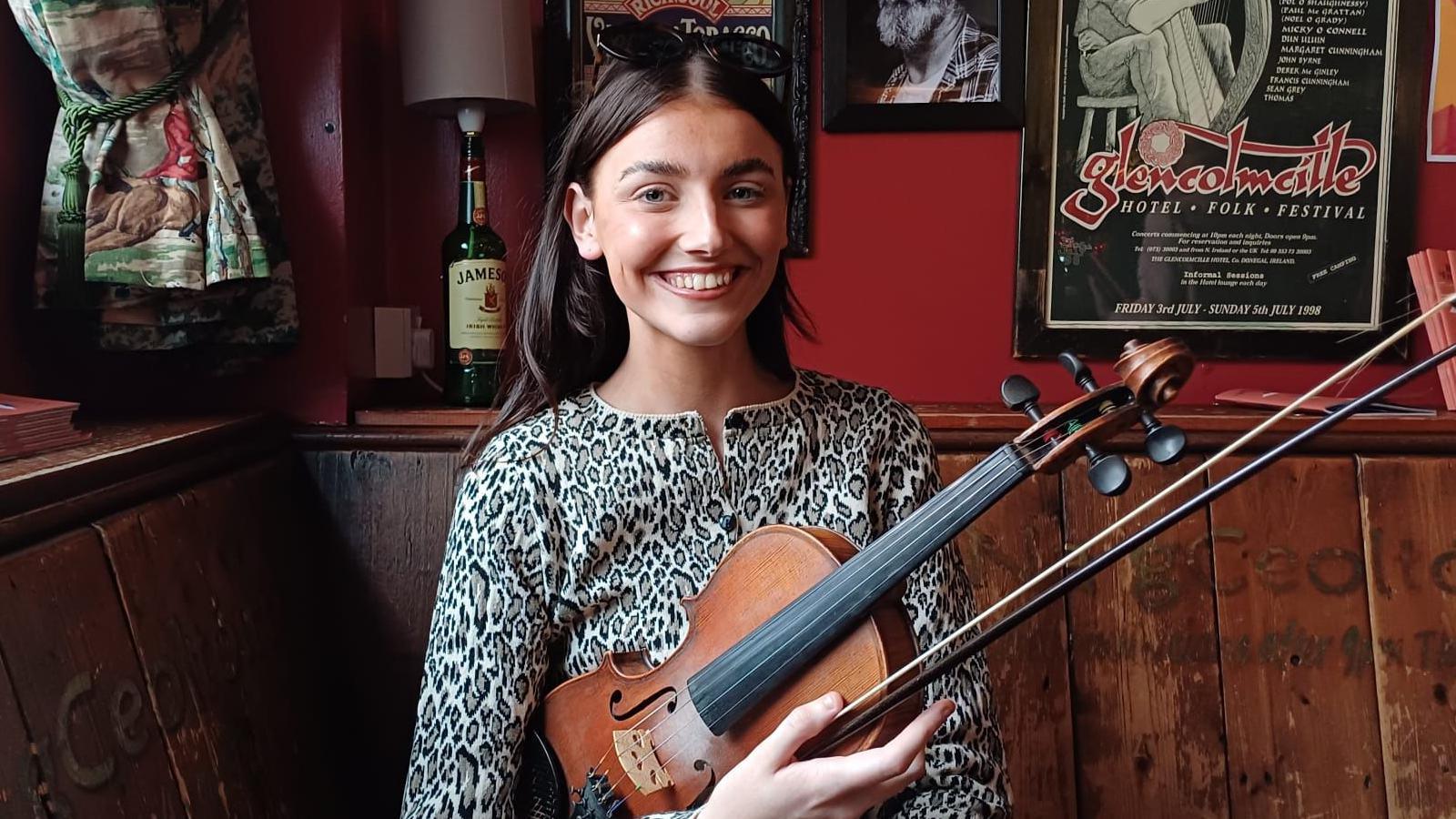
Rosie said music is "one of the most important things" in her life
Rosie McElroy, from Cookstown, started playing the fiddle when she was five years old.
Now a student at St. Mary’s University College, she said playing is about “staying true to the tradition I love”.
“It's probably one of the most important things in my life,” she said.
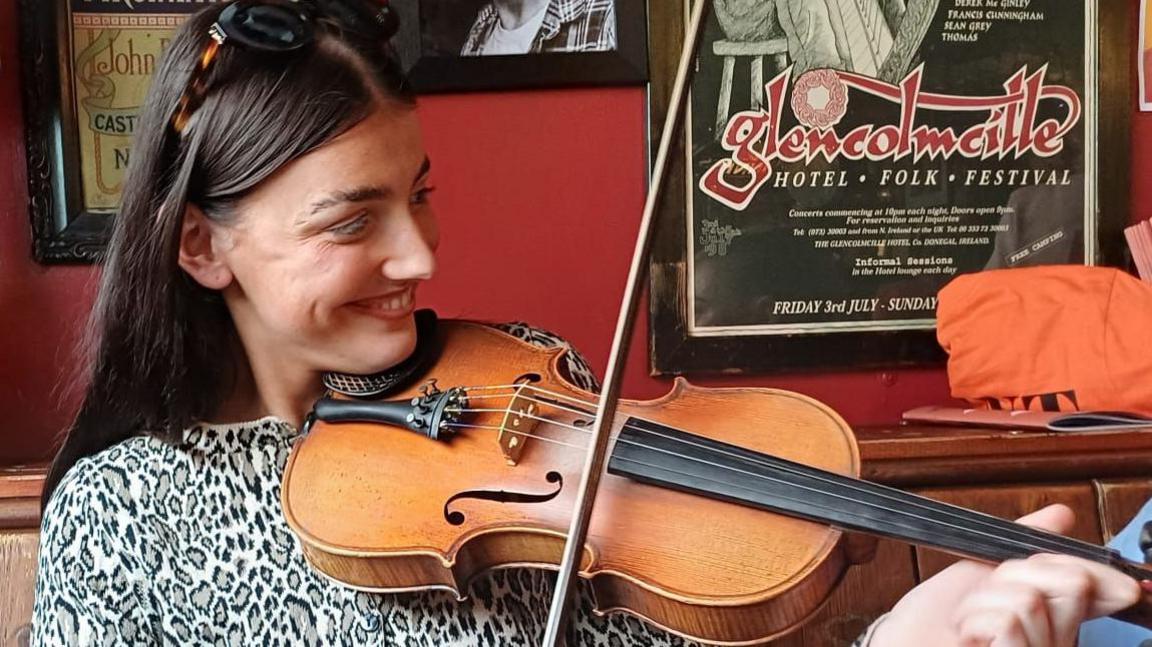
Rosie said there is something "to suit everyone" at Belfast TradFest
“Typically traditional music is probably seen as something for old people,” Rosie told BBC News NI, adding a "new generation of musicians is being created" thanks to events like Belfast TradFest.
“You have your festival clubs for people my age, you have all your different fiddle and banjo clinics, everything to suit everybody, and then you have your céilís and singing sections," she added.
“It's mad the amount of women that become involved in it rather than something that was such a male dominated thing for years.
"It's class to see so many girls become involved.”
'It's something that's growing'
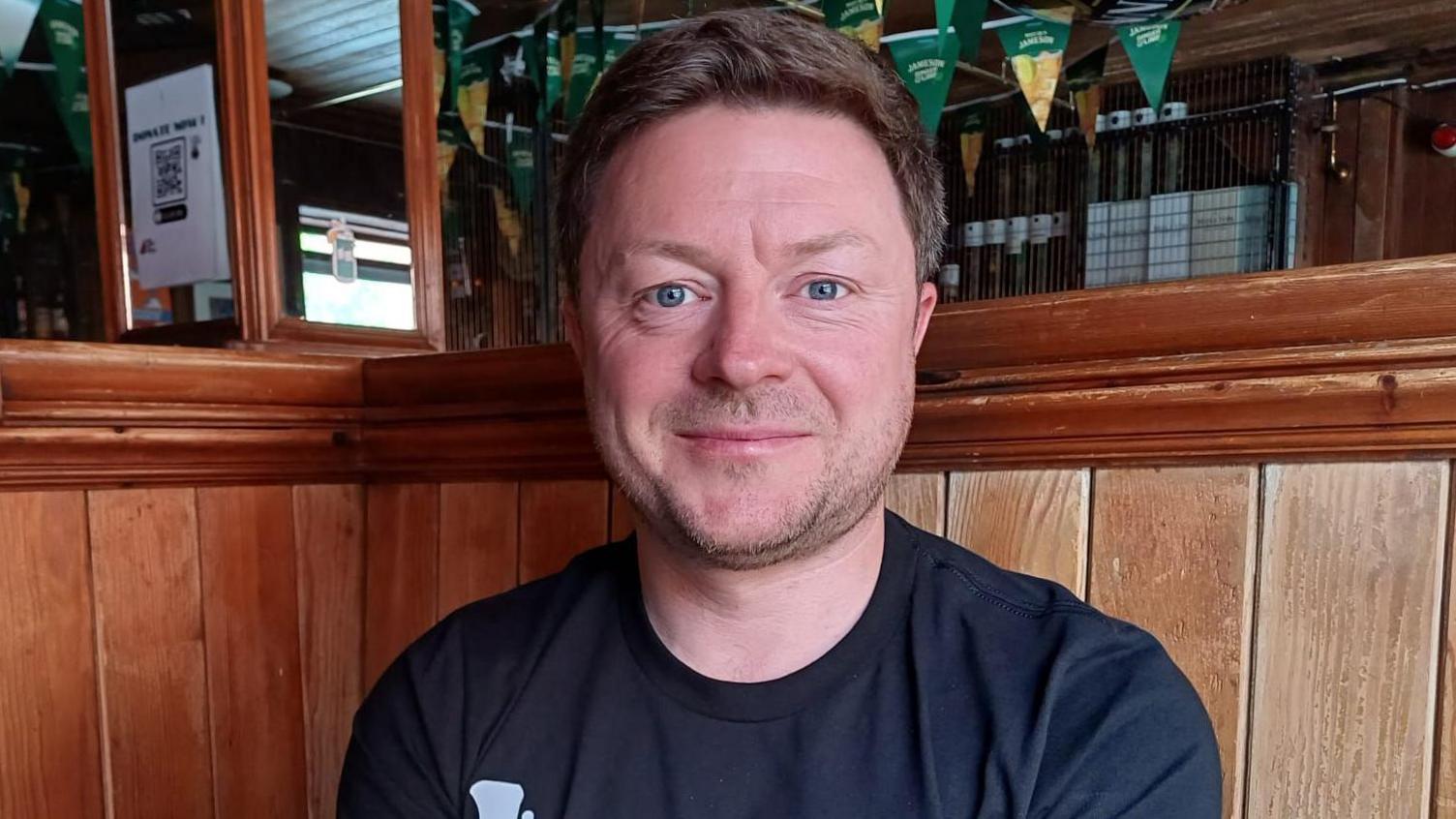
Dónal said “we're going through a challenging time with arts funding”
Dónal O'Connor, the artistic director of Belfast TradFest, said the festival is a celebration of the best of traditional Irish and Scottish music, song and dance.
He added it is an important part of the history of Northern Ireland.
“It tells us more about where we're from—the place names, the songs, the traditions, the cultural traditions,” he said.
Donál suggested more young people are learning and performing traditional music since TradFest started six years ago.
“It's on the fringes compared to contemporary mainstream music, but it's something that's growing, and we're seeing a huge surge in interest here in Belfast,” he added.
The festival opens with an outdoor céilí on the Titanic slipways.
“It's nice to have it on the slipways where the Titanic set sail into the new world, and at that time, céilí dancing was part of the fabric of here,” said Donál.
What is Belfast TradFest?
Now in its sixth year, thousands of people are set to descend on Belfast for the 370 events that takes place across 30 venues in the city.
The week-long festival offers concerts, céilís, music masterclasses and more.
Donál said TradFest is "cross cultural" and "cross traditions".
"We bring people together from the world of traditional music, from the world of piping and drumming, and people from all backgrounds and all ages,” he said.
The event on Sunday will feature The Blackwater Céilí Band, among others, and a range of activities from face painting to bodhrán circles, with sessions on the SS Nomadic.
TradFest kicks off with Sunday's céilí and finishes on 28 July.